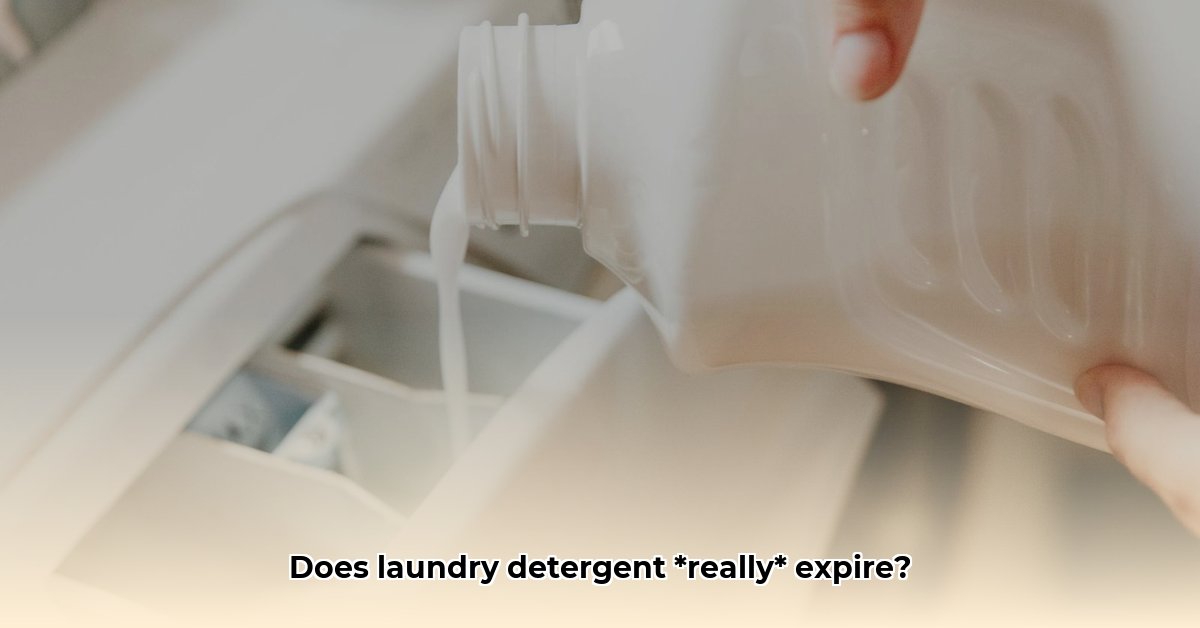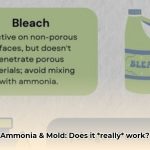Ever reached for your laundry detergent only to find it looking a little…suspect? Clumpy? Hard? Separated? It makes you wonder, does this stuff actually expire? While laundry detergent doesn’t “go bad” in the way food does (becoming unsafe to use), it does lose its cleaning power over time. Think of it like a flashlight with fading batteries – it still works, but not as brightly. This guide will walk you through everything you need to know about detergent shelf life, storage, and how to get the most out of your laundry routine.
Decoding Detergent Degradation: Why It Loses its Punch
The cleaning power of detergent comes from ingredients called surfactants and enzymes, which break down dirt and grime. Over time, these components can degrade, making them less effective. This is influenced by factors like storage conditions, the type of detergent, and even subtle variations in the manufacturing process. The “expiration date” on the bottle is more of a “best by” date—a suggestion for when the detergent is at peak performance. After that date, its cleaning ability likely starts to decline.
Detergent Types and Their Shelf Life: A Quick Guide
So, just how long does detergent really last? While the precise lifespan can vary, here’s a general guideline for different detergent types:
| Detergent Type | Unopened Shelf Life (Estimate) | Opened Shelf Life (Estimate) |
|---|---|---|
| Liquid Detergent | 9-12 Months | 6 Months |
| Powdered Detergent | Likely indefinite (quality may decrease after a couple of years) | Probably about 1 year (if kept dry) |
| Detergent Pods/Pacs | ~1 Year | ~6 Months |
| Laundry Detergent Sheets | ~1 Year | ~1 Year (if stored in an airtight container) |
| Homemade Detergent Solutions | ~2 Months | N/A (make small batches frequently) |
Remember, proper storage can significantly extend the life of any detergent type.
Spotting a Detergent Past its Prime: Tell-Tale Signs
Here’s how to tell if your detergent might be ready for retirement:
Powdered Detergent:
- Clumping/Hardening: If your powder looks more like a brick, it’s absorbed moisture and lost effectiveness.
Liquid Detergent:
- Separation: Distinct layers suggest the ingredients have separated, weakening the formula.
- Color Change/Discoloration: A significant shift from the original color can indicate degradation.
- Odor Changes: A sour or musty smell suggests bacterial growth and reduced effectiveness.
All Detergent Types:
- Poor Performance: The most telling sign? Your clothes just aren’t getting as clean.
Storing Detergent Like a Pro: Maximize Shelf Life
Proper storage is crucial for preserving detergent’s effectiveness. Follow these steps:
- Cool, Dry, and Dark: Store detergent in a cool, dry place away from direct sunlight and temperature fluctuations. A pantry or cupboard is ideal. Avoid storing detergent in the bathroom or near the dryer.
- Airtight Containers: Transfer opened detergent, especially powders and sheets, to airtight containers to protect them from moisture and air.
- Dry Utensils: Use dry scoops or hands when handling powdered detergent to avoid introducing moisture.
Repurposing Old Detergent: Don’t Toss it Just Yet!
Detergent past its prime for laundry can still be useful for other cleaning tasks:
- Cleaning Floors: Add a bit to your mop bucket.
- Wiping Surfaces: Use it to clean countertops, sinks, and other non-porous surfaces.
- Pre-soaking: Soak heavily soiled items in older detergent before washing with fresher detergent.
Eco-Friendly Laundry Practices: Think Green
- Eco-Friendly Brands: Explore detergents made with sustainable ingredients and minimal packaging.
- Homemade Detergent: Consider making your own detergent (while being mindful of its shorter shelf life).
- Cold Water Washing: Wash clothes in cold water whenever possible, as this can reduce the amount of detergent needed.
- Water Hardness: If you have hard water, you may need to use more detergent. A water softener can help minimize detergent usage.
Troubleshooting Common Laundry Detergent Issues: Quick Fixes
- Clumpy Detergent: Break up clumps or dissolve them in warm water before adding to the washing machine.
- Detergent Residue: You’re probably using too much detergent. Try reducing the amount, especially with soft water or smaller loads. Check your washing machine’s detergent dispenser for build-up, which can also cause residue.
- Clogged Dispenser: Clean your washing machine’s dispenser regularly to prevent detergent build-up.
Ongoing Research: The Evolving World of Detergent
Research into detergent formulations and their effectiveness is ongoing. Scientists are continually exploring new ways to improve cleaning power and reduce environmental impact. As a result, what we understand about detergent shelf life and effectiveness might evolve. Staying informed ensures you’re making the best choices for your laundry and the planet.
- Does Ammonia Kill Mold? The Truth About Using It for Removal - April 15, 2025
- Does Bleach Kill Spiders? Effectiveness, Safety, and Better Alternatives - April 15, 2025
- Does Soap Expire? How to Tell if Your Soap Has Gone Bad - April 15, 2025










